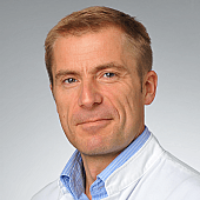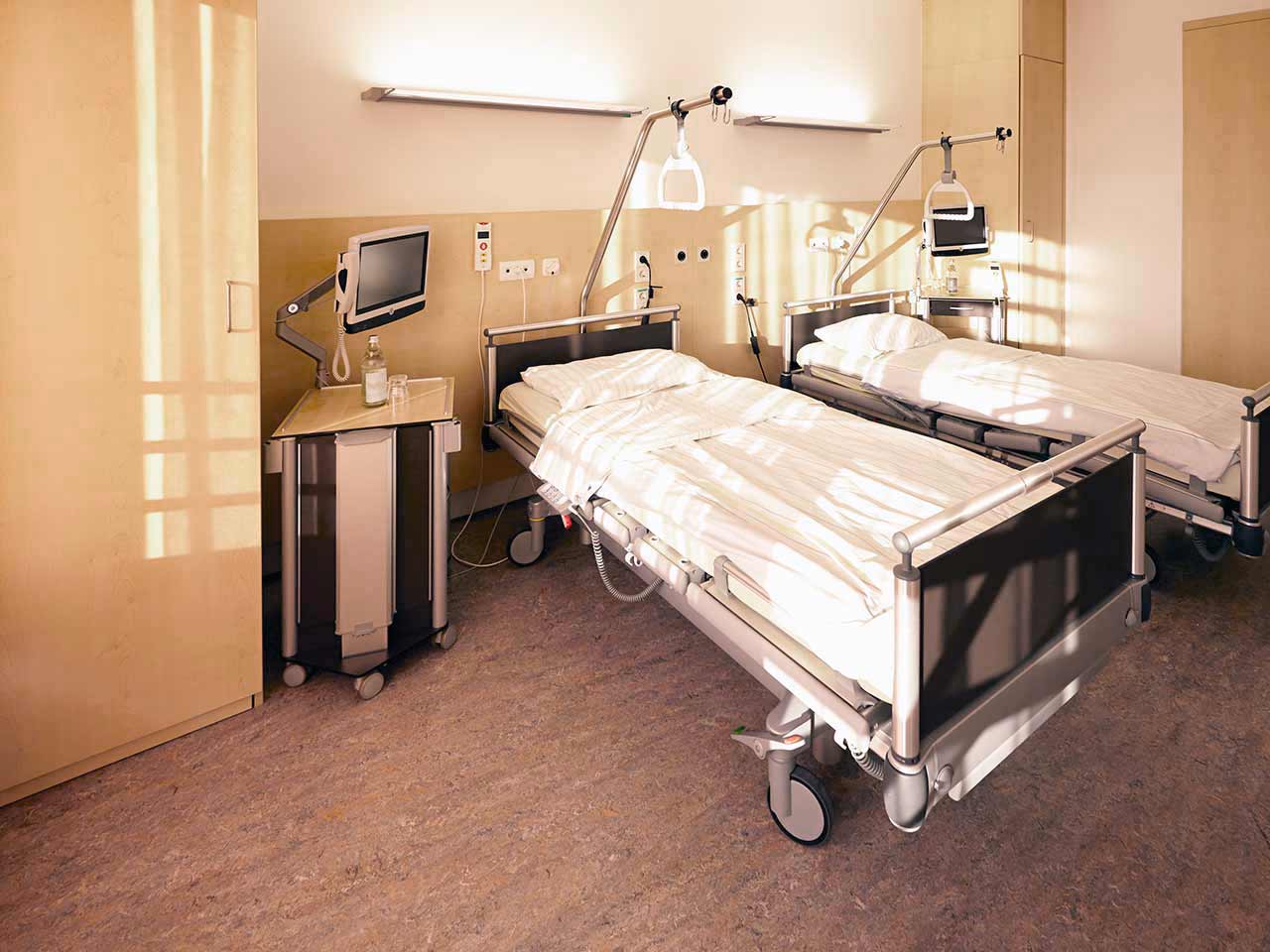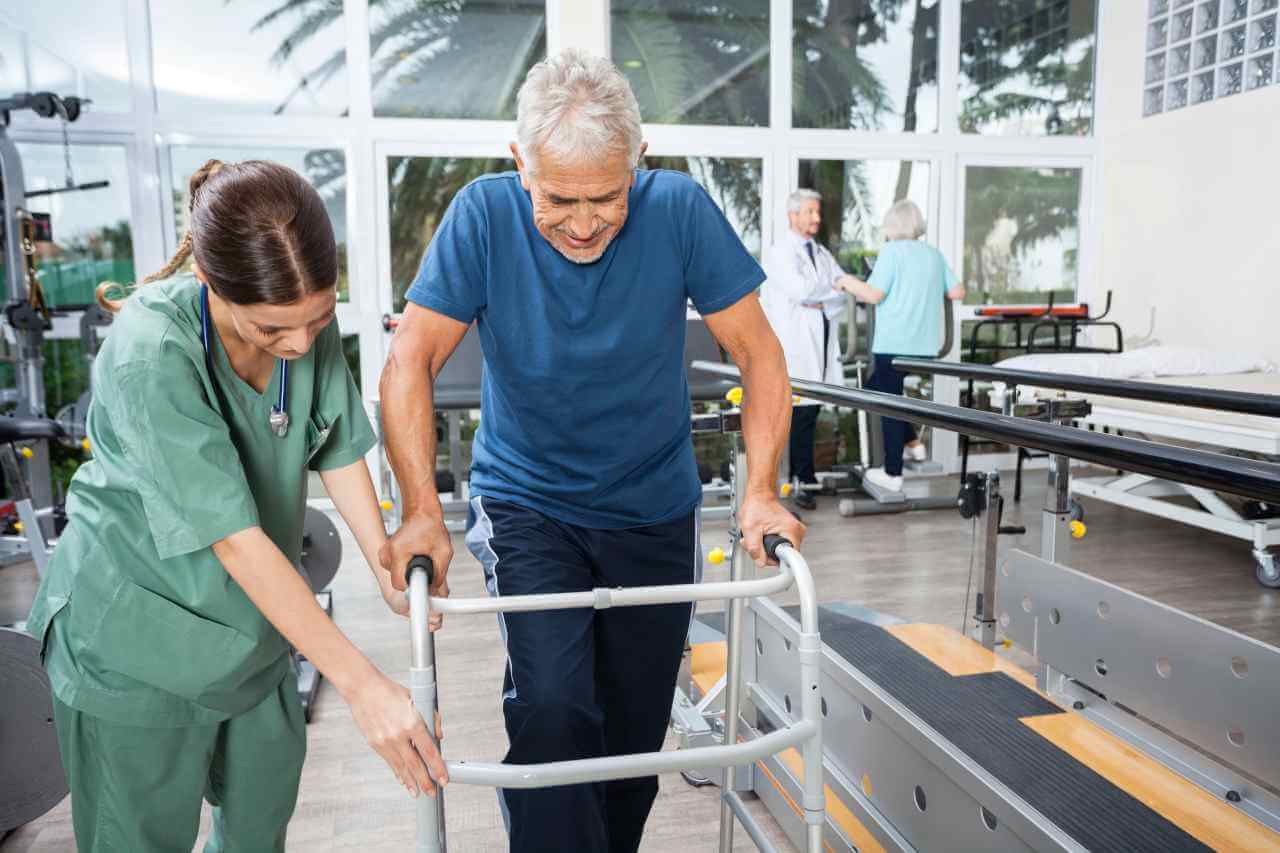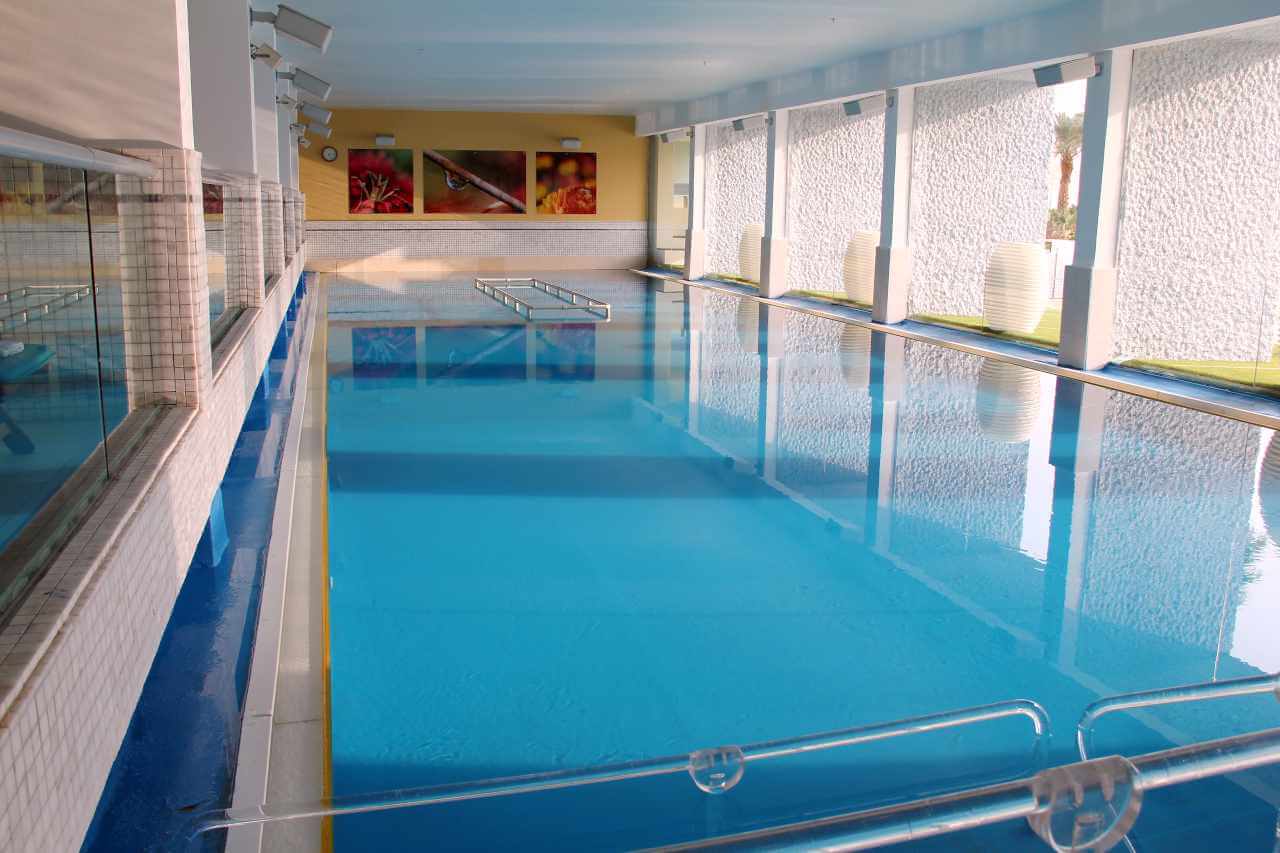
The program includes:
- Initial presentation in the clinic
- clinical history taking
- review of medical records
- physical examination
- laboratory tests:
- general blood analysis
- lipid metabolism
- carbohydrate metabolism
- mineral metabolism
- protein electrophoresis
- immune stasus
- immunofluorescence assay (IFA)
(total Lyme titer or IgG and IgM titers) - enzyme immunoassay (EIA)
- PCR detection
- inflammation indicators
- indicators blood coagulation
- joint aspiration- to exclude other causes of
effusion (eg, septic arthritis, gout, pseudogout) - CSF analysis - In patients with meningitis
- ECG - to identify Lyme carditis
- symptomatic specific treatment
- the cost of essential medicines and materials
- nursing services
- control examinations
- full hospital accommodation
- developing of further guidance
Required documents
- Medical records
Service
You may also book:
 BookingHealth Price from:
BookingHealth Price from:
About the department
The Department of Rheumatology at the ACURA Rheumatology Center Baden-Baden offers a full range of medical services in this medical specialty. The department provides medical care for patients with rheumatoid arthritis, collagenosis, vasculitis, spondyloarthropathies (ankylosing spondylitis and psoriatic arthritis), Sjögren's syndrome, gout, scleroderma, infectious arthritis, polymyalgia rheumatica, and other pathologies. The therapeutic process begins with a diagnosis, including a clinical examination, laboratory tests, and instrumental tests. After reviewing the results, the doctors of the department begin to develop an optimal treatment regimen for the patient. The specialists of the department prefer comprehensive treatment, including drug therapy with immunologic agents, biologic medicines, and other modern drugs, physiotherapy, occupational therapy, diet therapy, pain management, and psychological support. Treatment is provided in accordance with current clinical protocols and recommendations of the German Society of Rheumatology (DGR) and the German League Against Rheumatism. The Head Physician of the department is Dr. med. Olaf Schultz.
The primary focus of the department's daily clinical practice is on the treatment of rheumatoid arthritis. The pathology develops due to a malfunction of the immune system, as a result of which the patient's own tissues are perceived as foreign. Rheumatoid arthritis is a systemic disease accompanied by symmetrical damage to the small joints of the upper and lower extremities. Women are 3 times more likely than men to have the disease. Rheumatoid arthritis develops at a young age (35-55 years), progresses relatively slowly, and over time often leads to loss of ability to work and a decrease in the quality of life. Rheumatoid arthritis causes stiffness in the joints in the morning, pain, swelling, and fever in the affected joints, the formation of rheumatoid nodules, general weakness, and malaise. Rheumatoid arthritis is characterized by exacerbations alternating with periods of relative remission. With a complex course of the disease, there is a high risk of damage to the internal organs, especially the heart and lungs. At the diagnostic stage, the department's doctors conduct a clinical examination, analyze the patient's medical history, perform a series of laboratory tests, X-rays, and joint puncture. In some cases, MRI may also be performed. The treatment of rheumatoid arthritis is based on drug therapy. Doctors use nonsteroidal anti-inflammatory drugs, basic drugs, hormonal drugs, and biological agents. The drug treatment regimen is prescribed individually, taking into account the stage and degree of activity of the pathological process. Medication is supplemented by comprehensive physiotherapy, massage, diet therapy, and other therapeutic measures.
The department's specialists also have exceptional qualifications in the treatment of reactive arthritis, an inflammatory disease that develops after an infection, most often intestinal or genitourinary. In most cases, reactive arthritis develops within a month after the infection: body temperature rises, headaches, malaise, joint inflammation, urethritis (frequent urination with pain and burning), and signs of conjunctivitis (lacrimation and redness in the eyes) develop. At the same time, joint symptoms appear (usually one or more joints become inflamed). The joints of the lower extremities are most often affected, so as the disease progresses, it may become difficult for the patient to move. Sometimes there is pain in the lower back, indicating damage to the sacroiliac joints and spinal joints. Reactive arthritis can occur in acute, subacute, chronic, and relapsing forms. The diagnostic protocol for suspected reactive arthritis includes a wide range of laboratory tests: a complete blood count, an urinalysis, a blood biochemistry test, immunological tests, a synovial fluid analysis, and others. Diagnosis also includes X-ray scans of the affected joints and ultrasound scans to assess the condition of the periarticular tissues; in complex cases, arthroscopy may be required. The main task of the department's doctors in the early stages of reactive arthritis treatment is to eliminate the primary infectious focus using antibacterial therapy. Inflammatory reactions in the joints can be relieved with nonsteroidal anti-inflammatory drugs. In severe cases of reactive arthritis, the department's specialists resort to therapy with corticosteroids and/or basic drugs. Non-drug treatments also have a beneficial effect. These may include physiotherapy, exercise therapy, massage, and diet therapy.
An important part of the work of the department's medical team is medical care for patients with inflammatory systemic diseases, one of the most common of which is systemic lupus erythematosus (SLE). This disease is autoimmune in nature and causes systemic inflammation with damage to the internal organs. The pathology is based on a dysfunction of the immune system. Systemic lupus erythematosus has a chronic course with periods of remission and exacerbations. It affects the skin, heart, kidneys, joints, lungs, and brain. The first signs of SLE are characteristic butterfly-shaped skin rashes on the cheeks and bridge of the nose. Other classic symptoms of systemic lupus erythematosus include fever, increased fatigue, joint pain, swelling, headache, and dizziness and inflammation of the mucous membranes of the nose and mouth. Anaemia, itching, fever, gastrointestinal problems, and enlarged lymph nodes may also occur. If not treated in time, the patient is at risk of developing serious complications, including pericarditis, myocarditis, nephritis, pneumonia, and pleurisy. The diagnosis of systemic lupus erythematosus is made based on the results of a clinical examination and laboratory tests. Treatment tactics depend on the manifestations and activity of the inflammatory process. Treatment includes the use of drugs from various pharmacological groups such as immunosuppressants, hormonal drugs, nonsteroidal anti-inflammatory drugs, etc. The department's specialists develop a treatment regimen for the patient, taking into account the degree of SLE activity, the presence of damage to the internal organs, general health condition, and other factors. It should be noted that systemic lupus erythematosus is considered an incurable disease, but with adequate and timely treatment there is a high chance of achieving noticeable improvement and long-term remission.
The department's clinical focuses include the following:
- Diagnostics and treatment of arthritis
- Diagnostics and treatment of rheumatoid arthritis
- Diagnostics and treatment of psoriatic arthritis
- Diagnostics and treatment of gout
- Diagnostics and treatment of Lyme disease
- Diagnostics and treatment of reactive arthritis
- Diagnostics and treatment of inflammatory systemic diseases
- Diagnostics and treatment of systemic lupus erythematosus
- Diagnostics and treatment of CREST syndrome
- Diagnostics and treatment of Sjögren's syndrome
- Diagnostics and treatment of polymyositis and dermatomyositis
- Diagnostics and treatment of Sharp syndrome
- Diagnostics and treatment of giant cell arteritis
- Diagnostics and treatment of polymyalgia rheumatica
- Diagnostics and treatment of Wegener granulomatosis
- Diagnostics and treatment of periarteritis nodosa
- Diagnostics and treatment of Behcet's disease
- Diagnostics and treatment of inflammatory spinal diseases (spondyloarthritis)
- Diagnostics and treatment of Bechterew's disease
- Diagnostics and treatment of SAPHO syndrome
- Diagnostics and treatment of osteoporosis
- Diagnostics and treatment of other rheumatic diseases
The department's therapeutic options include the following:
- Drug therapy
- Physiotherapy
- Occupational therapy
- Diet therapy, including the use of a ketogenic diet
- Pain management
- Psychological care
- Other treatment methods
Curriculum vitae
Professional Career
- 1995 - 1996 Internship.
- 1996 Admission to medical practice.
- 1998 Thesis defense. Topic: "Development of an in vitro model for studying destructive joint diseases."
- 1996 - 2003 Research Fellow and Assistant Physician.
- 2003 Board certification in Internal Medicine.
- 2005 Board certification in Rheumatology; clinical practice in the Department of Endocrinology and Diabetology and the Department of Nephrology, Rheumatology, Diabetology and Internal Medicine at the University Hospital Cologne.
- 2005 - 2019 Senior Physician, Department of Rheumatology, ACURA Rheumatology Center Baden-Baden.
- Since 01.2020 Head Physician, Department of Rheumatology, ACURA Rheumatology Center Baden-Baden.
Photo of the doctor: (c) ACURA Rheumazentrum Baden-Baden
About hospital
The ACURA Rheumatology Center Baden-Baden is one of Europe's largest and most respected medical facilities for the treatment of rheumatic diseases and systemic inflammatory diseases. The center is an academic hospital of the University of Heidelberg, which enables innovations in the diagnosis and treatment of rheumatic diseases to be immediately introduced into clinical practice.
The ACURA Rheumatology Center Baden-Baden provides inpatient and outpatient treatment. The center has 131 beds available for patients. The medical facility has been in operation since the 1960s. During this time, the center has gained invaluable experience in providing medical care for pathologies of the rheumatic spectrum and their complications. Each clinical case is considered individually, which makes it possible to develop an optimal treatment regimen for the patient, taking into account the specifics of the pathology.
Rheumatic diseases are diagnosed in patients of various ages, but they are much more common in the elderly, so the center also offers the services of qualified geriatric specialists. The combined efforts of rheumatologists and geriatricians allow for comprehensive treatment of the elderly with the best results. In addition, the specialists take into account the psychological, somatic, and social factors of the disease during the therapeutic process. Patients at the center also have access to the services of physiotherapists, occupational therapists, nutritionists, and psychologists.
The ACURA Rheumatology Center Baden-Baden has a modern laboratory where a wide range of tests are performed. During treatment, doctors combine therapy with modern immunologic agents and biologic medicines, physiotherapy, occupational therapy, diet therapy, pain management, and psychological care.
The ACURA Rheumatology Center Baden-Baden is a specialized healthcare facility with high patient care standards. The center takes into account the individual needs and wishes of each patient and provides effective treatment and sensitive care. The patient and his or her health always come first.
Photo: (с) depositphotos
Accommodation in hospital
Patients rooms
The patients of the ACURA Rheumatology Center Baden-Baden stay in comfortable single and double rooms with all the necessary amenities. Each patient room has a balcony with a picturesque view. The standard patient room furnishings include a bed with an orthopedic mattress, a bedside table, a table and chairs, a wardrobe, a TV, a radio, a telephone, and an emergency call system for medical staff. Each patient room has an ensuite bathroom with a shower and toilet.
Meals and Menus
The center offers delicious and healthy meals three times a day: breakfast, lunch, and dinner. The menu always includes dietary and vegetarian dishes. All dishes are prepared from fresh regional products in compliance with the requirements of the German Nutrition Society (DGE). An individual menu can be prepared for the patient if required.
The center also has a cozy cafe where you can enjoy a cup of aromatic coffee or tea with a dessert.
Further details
Standard rooms include:
![]() Toilet
Toilet
![]() Shower
Shower
![]() Wi-Fi
Wi-Fi
![]() TV
TV
Accompanying person
Your accompanying person may stay with you in your patient room or at the hotel of your choice during the inpatient program.
Hotel
You may stay at the hotel of your choice during the outpatient program. Our managers will support you for selecting the best option.





